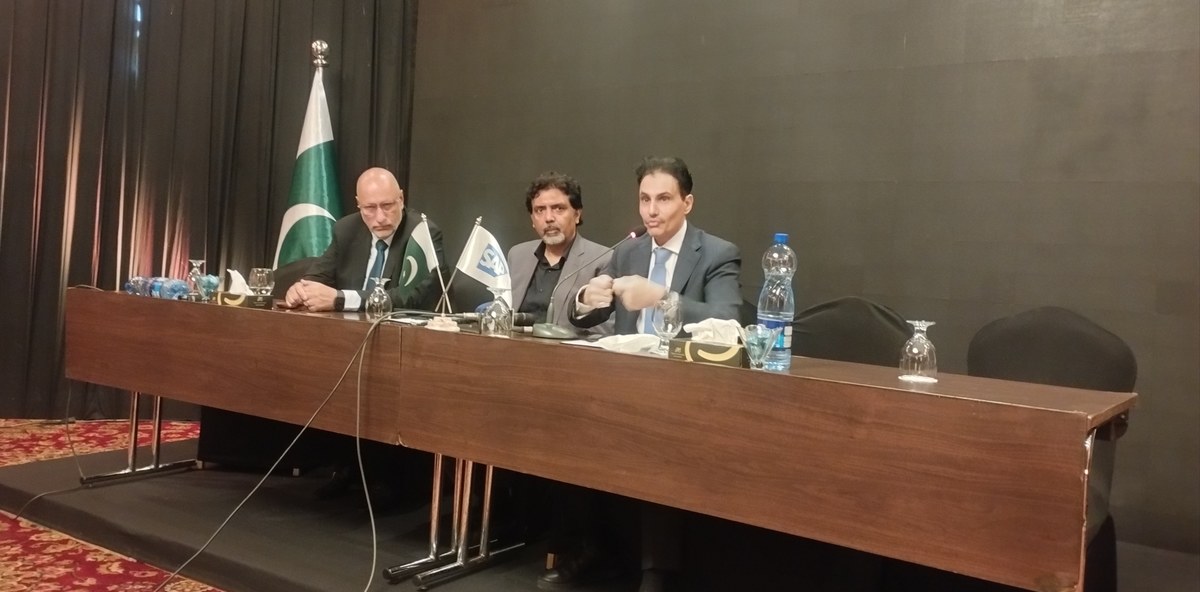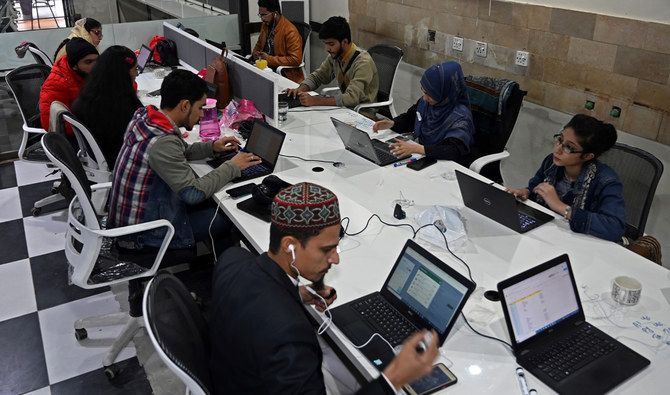KARACHI: A Saudi businessman, who oversees a global software firm in the Middle East and North Africa (MENA), believes Pakistan can position itself among the top countries known for technology production and usage due to its young population with an innovative mindset, similar to his own country.
Saudi Arabia is among the most advanced technology markets, where nearly every government service is available online as the kingdom seeks to diversify its economy by reducing its reliance on the thriving oil sector.
“We are one of the fastest-growing international markets in terms of technology adoption, and I believe our government ranks among the top five countries utilizing technology,” said Ahmed Al-Faifi, the senior vice president in the MENA region at SAP, a German software giant, during an interview with Arab News at a technology conference in Karachi on Thursday.

Ahmed Al-Faifi (first from right), the senior vice president in the MENA region at SAP, a German software giant, speaks at an event in Karachi, Pakistan, on June 15, 2023. (AN photo)
Al-Faifi continued, “This has happened because of two reasons. First, we have a young population. Second, the government, regulators, and technology vendors have joined hands to ensure the availability and ease of use of these technologies so that young people can adopt them.”
Al-Faifi, who runs the regional operations of the software firm from Riyadh, stated that Pakistan also possessed these advantages.
“I think we share these two commonalities,” he added. “Pakistan has a young population and good education, which helps students quickly grasp technology, and this is crucial. The second point is that when it comes to technology adoption and expansion, we are witnessing a lot of trust in technology investment in Pakistan.”
He maintained that Pakistan fulfilled the prerequisites of becoming a top technology producer in the world.
Al-Faifi mentioned that his organization was assisting Pakistan through technology sharing and helping its teams serve customers in the MENA region.
“We are bringing partners operating in Pakistan with know-how and experience to work in the Gulf and the GCC countries,” he continued. “This is how we are able to share knowledge and experience, but there are also many imports.”
Regarding the impact of Pakistan’s measures to slow down or stop repatriation of profits on his company’s operations, he stated that it posed challenges but his firm was managing to keep the operations afloat.
“Of course, it is impacting us, like other companies, because we have a significant business in Pakistan,” he said. “We face many challenges when trying to take cash out of the country. However, we have continued to provide our services and extend them to our customers and partners.”
SAP currently serves over 800 entities in both the public and private sectors of Pakistan, offering technology-based solutions across various industries, ranging from aviation to healthcare.
Saquib Ahmad, the company’s country manager, said the adoption of technology largely depended on Pakistan’s leadership since the general population was willing to embrace a more innovative lifestyle.
















